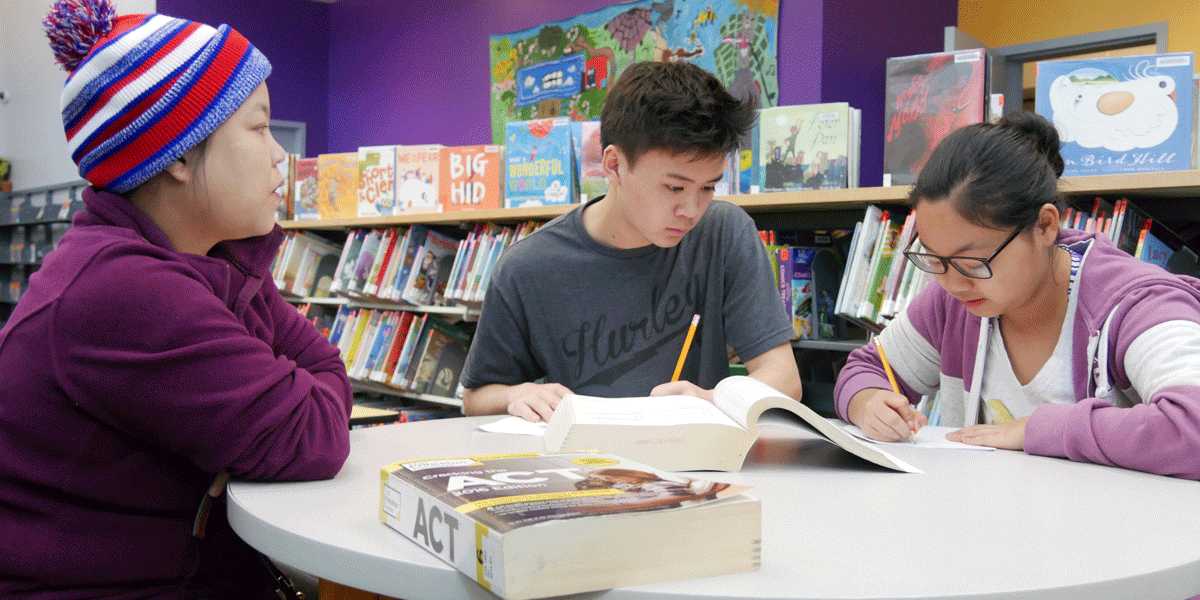Early on a snowy Saturday morning at the Martin Luther King, Jr. Library in Aurora, the doors have just opened, and already a large group of Colorado Academy students have gathered in the main reading room.
At one table, CA Senior Bennett Liu sits with 15-year-old Wah Ya, a Freshman at Aurora West High School, under her mother’s watchful eye. Wah Ya wants help as she prepares to take college entrance exams. “Which do you prefer, ACT or SAT?” Liu asks her. “SAT,” she replies. “That was my favorite, too,” Liu says, and they get down to work with a thick SAT manual.
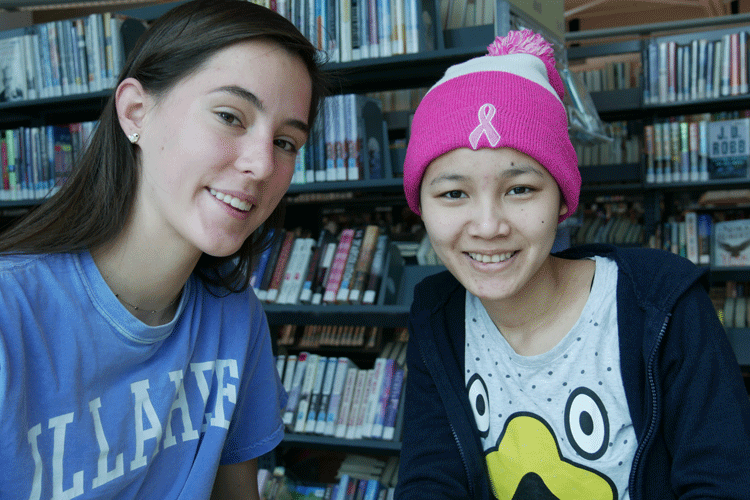
At another table, Sophomore Catherine O’Halloran is helping a young woman who is preparing to take an American citizenship exam. At other tables, Sophomore Mackenzie Wagner, Junior Hayden Wolfe, and Freshman Wyatt Rubey are helping children learn to read.
Instead of sleeping in on a weekend, the CA students have traveled from far corners of the Denver Metro Area to fulfill the mission of Project KARE, a CA Club founded by Liu to educate Karen refugees displaced by political unrest in their homeland.
Except for Liu, none of the CA students had even heard of the Karen people before their experience with Project KARE. Now, they are committed to helping these refugees achieve success in a new country.
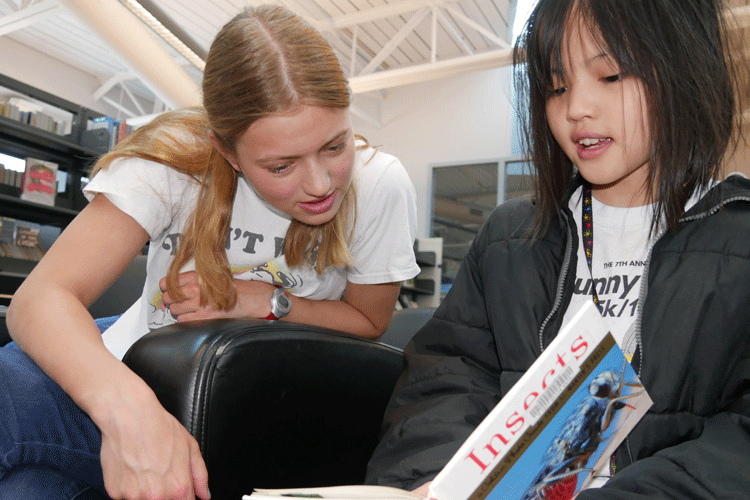
‘I definitely have more appreciation for my teachers’
The Karen are indigenous to the Thailand-Burma (Myanmar) border region in Southeast Asia and are one of the many ethnic groups in Burma. Decades of war and ethnic cleansing have driven hundreds of thousands Karen people from their homes, many into refugee camps. Liu first heard about the plight of these people when, through his uncle, he met local refugee families who were able to come to the United States with lottery visas.
“What intrigued me about them is that they didn’t take anything for granted,” Liu says. “We take freedom for granted. They do not.”
When Liu received CA’s Jennifer Wu Memorial Fellowship, he decided to use the opportunity to do summer volunteer work at a school which serves the Karen refugees at the Mae Ra Moe Refugee Camp on the border of Thailand and Burma.
He flew from Denver to Tokyo to Bangkok, took a 4-hour bus ride, and completed his journey with a 7-hour truck ride to the refugee camp. Part of his project was the creation and installation of solar panels to help provide energy to refugee schools. At the camp, he also taught English—even though he knew only about 10 words in the Karen language. It was a crash course in teaching English as a Second Language for Liu, who had 100 students in each of his five classes.
“English grammar was very difficult for them, and only the teacher had a textbook,” Liu says. “I would say and write a word and they would repeat it.”
If he assigned homework, he was the one who suffered. “With 5 classes and 100 students in each, homework hurt me,” Liu says. “But they really needed to hear feedback. I definitely have more appreciation for my teachers!”
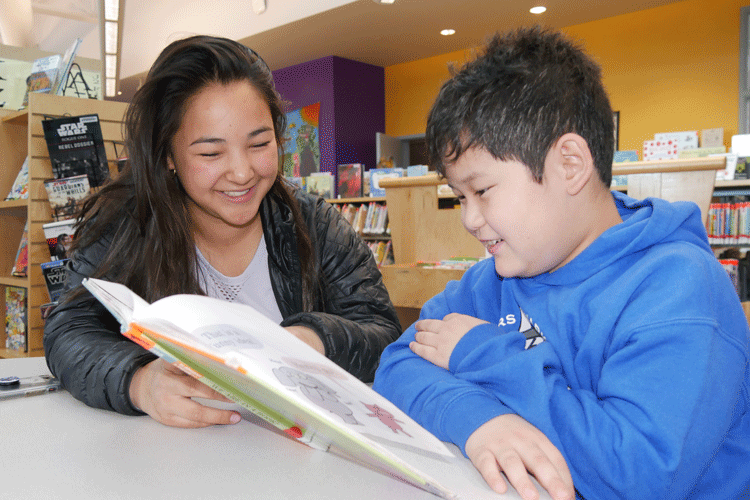
‘Yet they can find hope’
Liu knew when he returned from the Mae Ra Moe Refugee Camp that he might not be able to go back because of the uncertain political situation in the area, but he still felt connected to the people he had helped. “The trip was transformative for me,” he says. “I wanted to find a way to give back.”
He found a way by creating a new CA Club, Project KARE, which is a local arm of the international organization Project KARE, Karen Alliance for Refugee Education. He made a Town Hall announcement at CA, and to his astonishment, more than 150 CA students signed up to help.
On that early Saturday morning, Wagner had left her friends behind at a sleep-over to tutor. “I can go to CA, which is such a good school,” she says. “Helping others makes me more grateful for the education I am provided.”
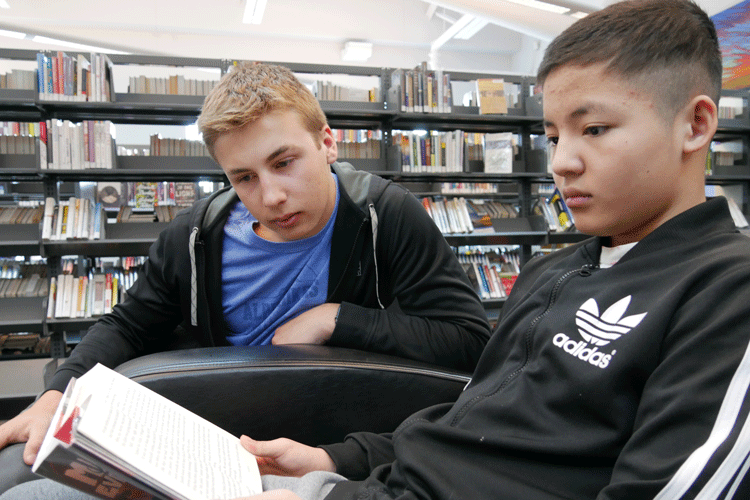
Hayden Wolfe admits that tutoring someone whose language he does not know took some adjustment—and some hand gestures. “But it’s worth it,” he says, “because it’s really important for me to help these kids reach their full potential.”
Catherine O’Halloran considers the different ways she could be spending her free time and believes she has made the right choice. “It’s so easy to do,” she says. “And it makes such an impact.”
Liu, who is bound for Stanford University next year, hopes the club will continue after he leaves CA. The club’s mission has allowed him to give back to people who educated him for one summer, a people whose language he does not know, and yet who were able to teach him a very important life lesson.
“They are caught between two worlds,” Liu says. “And yet they can find hope.”
